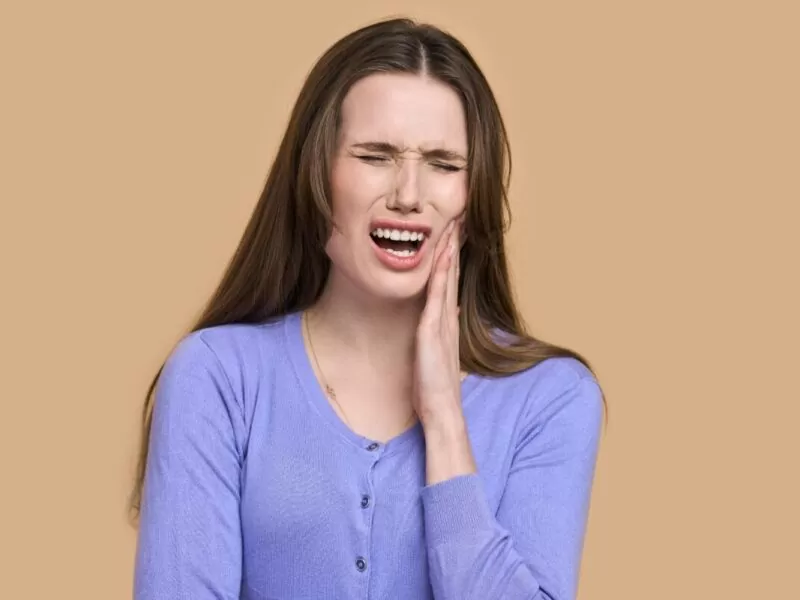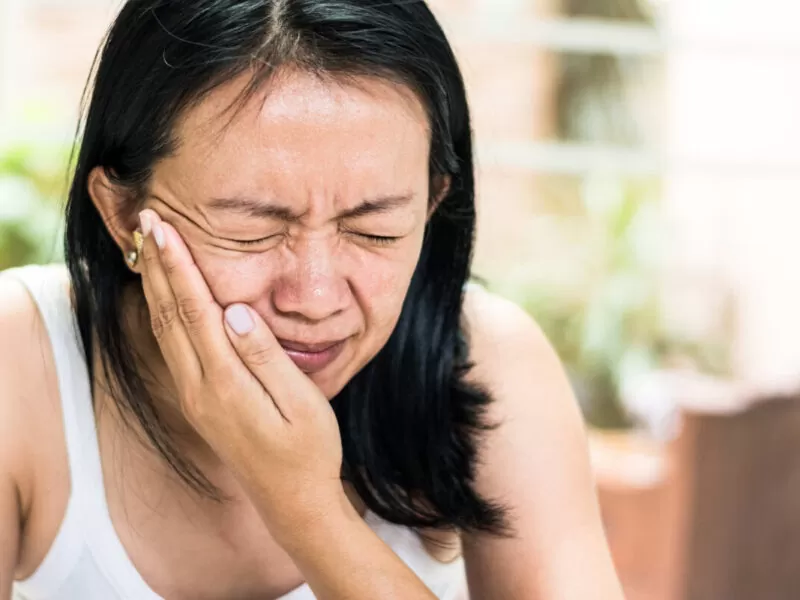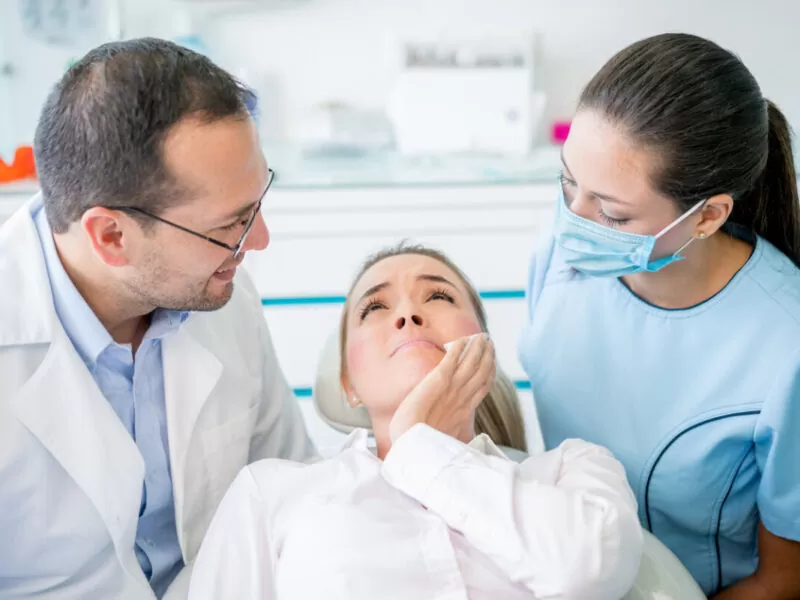What To Do With Unbearable Tooth Pain
Unbearable tooth pain isn’t just a nuisance; it’s a call for attention to your dental health. Here, we offer practical advice and insights to help you tackle this common yet distressing issue head-on. From identifying the likely causes to exploring immediate pain relief options and knowing when to seek professional care, our focus is on empowering you with information and solutions. You’ll learn how to address your tooth pain effectively, ensuring it doesn’t put a damper on your day. Getting to the root of severe toothache starts with understanding it, and we’re here to guide you every step of the way.

Common Causes of Unbearable Tooth Pain
Unbearable tooth pain can stop you in your tracks, making even the simplest tasks feel impossible. Let’s break down the common culprits behind this kind of discomfort.
Cavities: Small at first, they can deepen, reaching nerves and triggering sharp pain.
Gum Disease: Gum disease can lead to sore, swollen gums and toothache, often without early warning signs.
Abscesses: Infections either around the tooth or in the gum, causing severe pain and potential swelling.
Impacted Wisdom Teeth: When there’s no room for them to emerge, they can cause pain in the tooth and surrounding areas.
Cracked or Damaged Teeth: Accidents or biting down hard can expose sensitive areas, leading to varying levels of pain.
Food Debris: Pieces stuck between teeth or under the gum line can escalate from minor annoyance to significant discomfort.
First Aid for Unbearbale Tooth Pain: Simple Steps to Relieve Discomfort
Here are some straightforward and effective steps to help relieve unbearable tooth pain:
Rinse with Warm Salt Water: Mix a teaspoon of salt in a cup of warm water and gently rinse your mouth. This can help reduce swelling and clear away any irritating debris.
Cold Compress: Apply a cold compress or a bag of frozen peas wrapped in a towel to the outside of your cheek. Do this for 20 minutes on, then 20 minutes off to help reduce pain and swelling.
Over-the-Counter Pain Relievers: Medications like ibuprofen or paracetamol can temporarily ease the pain. Always follow the dosage instructions on the package.
Clove Oil: A natural pain reliever, clove oil can be applied directly to the sore area using a cotton ball. It has numbing properties that can help reduce pain.
Avoid Hard or Sticky Foods: Stick to soft foods and avoid chewing on the side of your mouth where the pain is. This can help prevent further irritation.
Keep Your Head Elevated: When lying down, prop your head up with a few pillows. Keeping your head higher than your body can reduce the blood pressure in the tooth area and lessen the pain.
When to See a Dentist: Signs You Shouldn’t Ignore
Knowing when to book an appointment with your Brisbane dentist can prevent a small issue from becoming a big problem. Here are signs you shouldn’t ignore:
Persistent Pain: If your toothache lasts more than a couple of days, it’s a signal something’s wrong. Don’t wait it out.
Swelling in Your Jaw or Face: This could indicate an infection. If you notice swelling, especially if it’s accompanied by fever or a bad taste in your mouth, see your dentist straight away.
Sensitivity to Hot and Cold: If a sip of coffee or a bite of ice cream sends a painful signal to your tooth, it could mean decay or a loose filling.
Bleeding or Sore Gums: While it might be common after flossing, if bleeding is regular and comes with pain or swelling, it’s time to check in with a dentist.
Difficulty Chewing or Biting: Pain or discomfort when eating can indicate a range of issues, from cavities and broken teeth to gum disease.
Loose Teeth: Adults shouldn’t have loose teeth. If you notice movement or widening gaps, it’s crucial to get it checked.
Bad Breath or a Bad Taste: Persistent bad breath or a bad taste in your mouth can be signs of gum disease or decay.
Changes in Mouth’s Appearance: Any change in the colour of your gums or the texture inside your mouth warrants a professional look.
Dental issues can affect much more than just your mouth, so take them seriously. Regular check-ups can catch problems early, often making them easier and less costly to treat. Your dentist is your partner in maintaining not just oral health but your general well-being, too.

What to Expect at the Dentist: Solving Your UnbearableTooth Pain Mystery
Visiting the dentist for unbearable tooth pain can feel daunting, but knowing what to expect can ease those nerves. Here’s a simple guide on what happens at Pure Dentistry:
Warm Welcome: Upon arrival, you’ll be greeted by our reception team. If it’s your first visit, you might need to fill out some forms about your dental history and current health.
Initial Chat: You’ll start with a chat with your dentist. Here, you’ll discuss your pain: where it is, what it feels like, and how long you’ve been experiencing it.
Examination: The dentist will then examine your mouth, paying special attention to the area causing discomfort. They may tap on teeth, check your gums, and look for signs of infection or decay.
X-rays: If the cause of your pain isn’t clear from the visual examination, your dentist might take X-rays. This helps them see between and inside your teeth and under your gums.
Diagnosis: With the information gathered, your dentist will explain what’s causing your pain. It could be a cavity, an abscess, gum disease, or something else.
Treatment Plan: Once they’ve identified the problem, they’ll discuss your treatment options. This might involve a filling, root canal, extraction, or antibiotics if there’s an infection. They’ll make sure you understand each step and are comfortable with the proposed plan.
Immediate Relief: If you’re in a lot of pain, your dentist can provide immediate relief through medication or starting the first step of treatment, like draining an abscess or applying a temporary filling.
Preventative Advice: Before you leave, you’ll get advice on how to manage your dental health to avoid future pain. This could include brushing, flossing, diet changes, or wearing a mouthguard if you grind your teeth.
Follow-up: If your treatment requires several visits, you’ll discuss the best times to come back. Even if you don’t need further treatment, regular check-ups are key to preventing new dental issues.
Preventing Tooth Pain: Daily Habits for a Healthier Smile
Keeping your smile healthy and avoiding tooth pain isn’t just about reacting to issues as they arise—it’s about establishing good daily habits. Here’s how you can keep your teeth in top shape and minimize the risk of pain:
Brush Properly Twice a Day: Use fluoride toothpaste and a soft-bristled brush. Spend at least two minutes each time brushing all surfaces of your teeth.
Floss Daily: It’s not just about removing food particles; flossing reduces plaque build-up, which can lead to decay and gum disease.
Limit Sugary and Acidic Foods and Drinks: Sugar turns into acid in the mouth, eroding the enamel of your teeth. Acidic fruits, teas, and coffee can also wear down tooth enamel.
Drink Plenty of Water: Water helps wash away food particles and keeps your saliva levels high. Saliva is your mouth’s natural defence against tooth decay.
Chew Sugar-Free Gum After Meals: This can help increase saliva flow, neutralize acids, and remove food particles from your mouth.
Don’t Ignore Your Tongue: Plaque can also build on your tongue, leading to oral health problems. Gently brush your tongue every time you brush your teeth.
Protect Your Teeth: If you play sports, consider wearing a mouthguard to protect your teeth from injury. Similarly, if you grind your teeth at night, a nightguard can prevent wear and tear.
Stop Smoking: Smoking is linked to a range of dental problems, including gum disease, tooth decay, and oral cancer. Quitting can significantly reduce these risks.
Regular Dental Check-ups: Regular visits to the dentist for cleanings and check-ups can catch problems early, often making them simpler and cheaper to treat. Ensure you arrange regular dental visits with a paediatric dentist to help maintain your child’s oral health and prevent future issues.
How Regular Check-Ups Can Save You From Pain
Regular dental check-ups might not top your list of favourite things, but they’re key to keeping tooth pain at bay. Think of these visits not as a chore but as a protective shield for your smile. Here’s how regular dental check-ups can keep you smiling broadly without any pain:
Early Detection of Problems: Dentists have a knack for spotting issues you can’t see or feel just yet. Catching cavities, gum disease, or wear and tear early means simpler and less invasive treatments.
Professional Cleaning: No matter how good you are with your toothbrush, there are parts of your mouth you just can’t reach. Dental Exam and Clean in Brisbane removes plaque and tartar build-up, keeping your gums healthy and your teeth strong.
Prevention Advice: Your dentist can provide tailored advice on how to improve your oral hygiene routine, including brushing techniques, the right toothpaste for you, and specific areas you need to focus on.
Addressing Small Issues Before They Become Big Ones: That tiny cavity won’t stay tiny for long. Regular check-ups mean you can fill it before it becomes a root canal candidate.
Saving Money in the Long Run: Regular maintenance can prevent the need for more complex and expensive treatments. Think of it as investing a little now to save a lot later.
Oral Cancer Screening: Many dentists include an oral cancer screening as part of a routine check-up. Early detection is crucial for successful treatment.
Maintaining Previous Dental Work: If you have fillings, crowns, dental implants, or dentures, your dentist can check to make sure everything is in top shape and functioning as it should.

Ease Your Pain Today with Pure Dentistry
Experience the difference at Pure Dentistry, where your comfort and dental health are our foremost priorities. With convenient payment options like Humm and Supercare, accessing top-tier dental care has never been easier. Embrace a pain-free dental visit with our specialized services in sleep dentistry, IV sedation, and laughing gas, ensuring every treatment is as comfortable as possible. For urgent dental needs, we’re here with emergency care services to address your concerns promptly. Ready to transform your dental experience? Call us at 07 3343 4869 today, and let us guide you to a healthier, brighter smile.




































